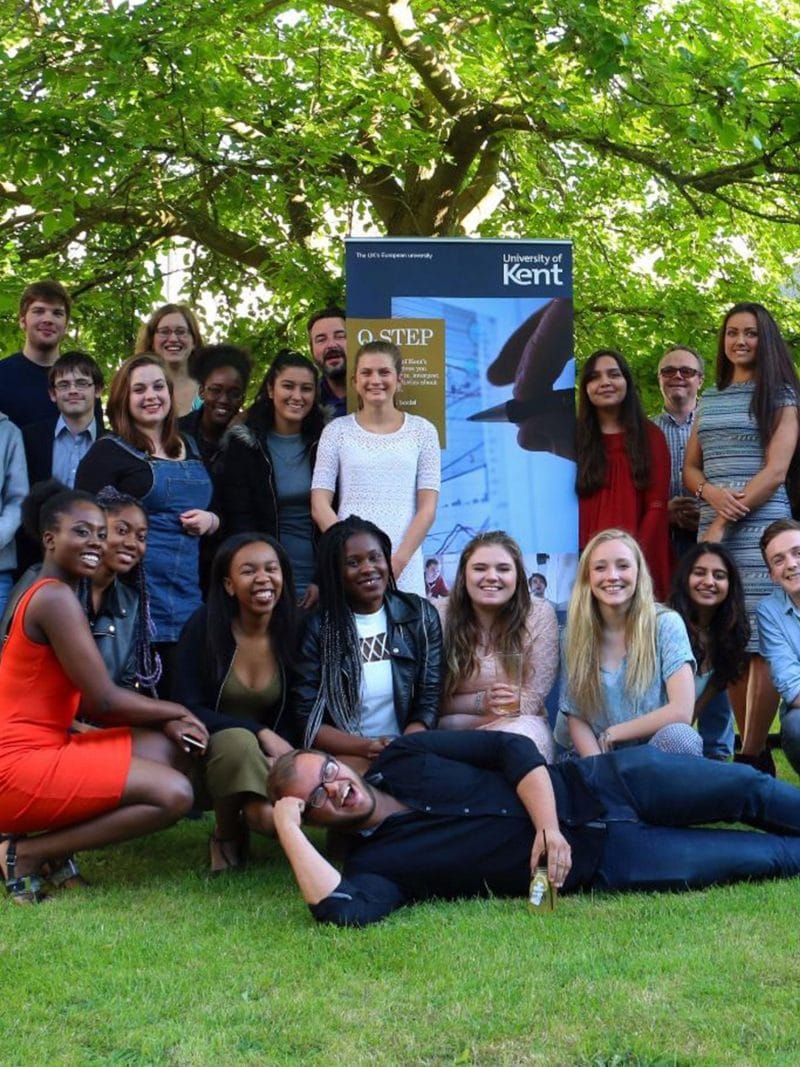For students
Seventeen universities across the UK have a Q-Step Centre which supports the development and delivery of specialist undergraduate programmes.
This includes the creation of new courses, work placements, and pathways to postgraduate study with an emphasis on improving and growing undergraduates’ high-level quantitative skills.
Q-Step Centres deliver quantitative skills training that provides a deep and secure grasp of the quantitative research methods needed to evaluate evidence and analyse data. Courses include ‘3+1’ four-year degree programmes providing training equivalent to a combined Bachelors and Masters course – and sequences of courses leading to a BSc or BA. The majority of Q-Step Centres offer courses that provide links to Masters degrees.
Q-Step Centres also offer a broad range of summer schools, research placements and internships and most are engaged in outreach work with schools to support teachers and encourage student recruitment.
Q-Step career paths
Quantitative skills are interdisciplinary and transferable. With a Q-Step degree you could:
-

Pursue a career as a policy advisor or analyst in the public sector, in business or for a charity.
-

Work in market research for a professional services company, local government or a trade union.
-

Become an investigative or data journalist, an economist or statistician.
-

Undertake postgraduate study and become a researcher in your specialist area in a university, think tank, or the civil service.
-

Apply your skills in many different industries and services, such as healthcare, finance or education.
For employers
Seventeen universities across the UK have a Q-Step Centre which supports the development and delivery of specialist undergraduate programmes.
This includes the creation of new courses, work placements, and pathways to postgraduate study with an emphasis on improving and growing undergraduates’ high-level quantitative skills.
Q-Step Centres deliver quantitative skills training that provides a deep and secure grasp of the quantitative research methods needed to evaluate evidence and analyse data. Courses include ‘3+1’ four-year degree programmes providing training equivalent to a combined Bachelors and Masters course – and sequences of courses leading to a BSc or BA. The majority of Q-Step Centres offer courses that provide links to Masters degrees.
Q-Step Centres also offer a broad range of summer schools, research placements and internships and most are engaged in outreach work with schools to support teachers and encourage student recruitment.
Benefits to host organisations
Work placements give students the opportunity to use their training in quantitative research methodologies and contribute to a project with a significant data analysis component.
Most Q-Step degrees require students to undertake work placements, usually one day a week towards the end of their second year of study, or full-time over 4-8 weeks during the summer.
-
Provide invaluable experience to students with strong quantitative research skills.
-
Help develop talented students and offer graduate positions.
-
Provide staff the opportunity to mentor a student and develop their management skills.
-
Strengthen links with the higher education sector.
Working with Q-Step has given us access to strong students with good quantitative skills, who want to put these skills in practice. The Q-Step placement scheme is an excellent way that we can work together with social science students at the University of Leeds to undertake joint projects on important issues for the Yorkshire region.Mark Goldstone, Head of Business Representation and Policy, West and North Yorkshire Chamber of Commerce
Provide a work placement
Q-Step Centres are always looking for employers who are interested in providing work placements. If you would like to learn more, please contact your local Q-Step centre stating your organisation, the type of project you could offer a Q-Step student and where the student would be based.













